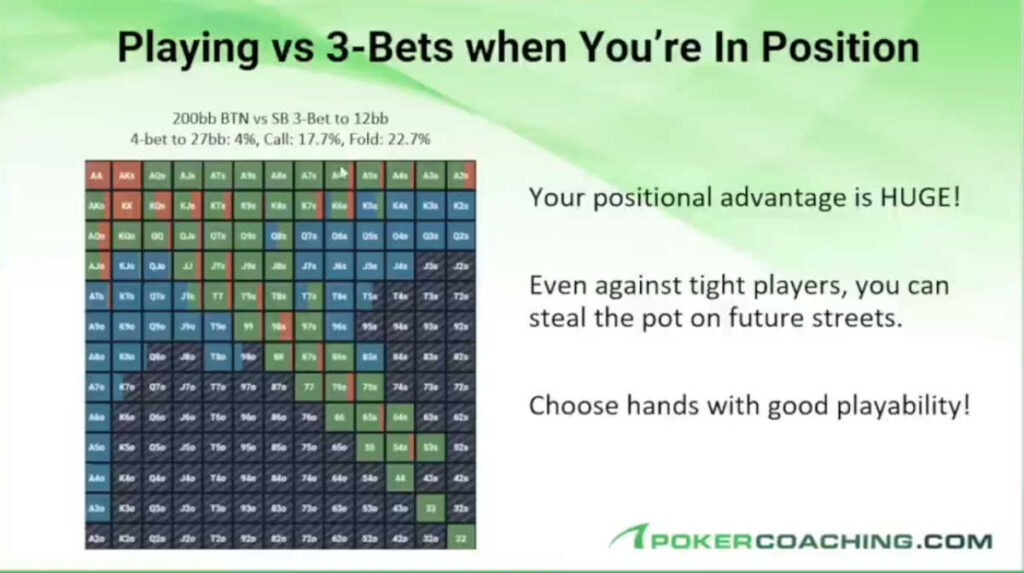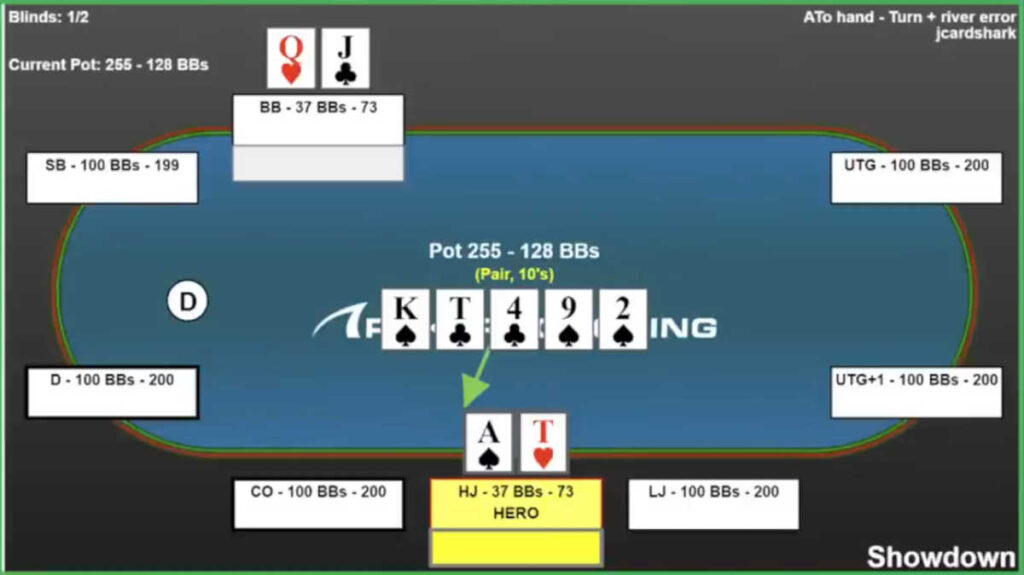Image courtesy of World Poker Tour
If your goal is to crush low stakes live cash games, the first thing you need is good, strong fundamentals. You need to play fundamentally sound poker and then exploit common mistakes that your opponents will inevitably make.
In this lesson, we’ll cover a few important strategic aspects that will help you excel in these live cash games, such as:
- How to 3-bet logically preflop
- The biggest mistake I see in small stakes games
- My personal number one tip for exploiting recreational players
So, without further ado, let’s jump into it and cover the top five tips that will help you start (and continue to) crush live cash games.
Tip #1: 3-Bet More Often Preflop
In most low-stakes cash games, players want to splash before the flop with all sorts of holdings to try and make strong hands after the flop in hopes of getting paid.
However, this isn’t how you crush these games.
You’ll crush $1/$2 cash by using aggressive strategies that implement 3-bets to isolate weak players before the flop. The idea is to make pots bigger against one player who has a marginal range.
Let’s look at an example, playing 100 big blinds deep on the button, facing a lojack open.
As you can see on the first chart below, in this spot, we are 3-betting aces, kings, and queens for value (and a little bit of tens and jacks). Everything else is essentially a bluff.

As you get deeper stacked, you’ll want to primarily 3-bet with hands like suited aces, suited kings, and low suited and connected hands.
You may be surprised at how tight this range looks, but if your opponent plays reasonably tight, you have to be tight yourself. Now, in most live cash games, most players raise too wide to begin with, and you can adjust by 3-betting wider for value.
You need to understand what the GTO strategy is first, and then you can make logical adjustments based on your opponents’ tendencies.
Button is one position where you’ll actually have a decently wide calling range. In most other positions, however, you’ll prefer to play a 3-bet or fold strategy.
If you look at the picture above, on the right side, we have a chart showing a small blind strategy facing a button open.
In this spot, we are 3-betting almost every hand we want to play. You don’t want to call and entice the big blind to enter, putting you in a 3-way pot, out of position.
Many players at low stakes don’t quite understand this principle, which means they call with all sorts of trash from a small blind. Knowing this is good for you, as it’s much easier to make money in games where your opponents are making mistakes left and right.
Tip #2: Fight Harder in Position
Most players play way too tightly against 3-bets. This is usually a good adjustment when you are out of position and playing against a solid opponent who plays reasonable ranges.
When you are guaranteed to be in position, however, you need to be fighting hard and using your advantage, especially as stacks get deeper and deeper.
Let’s look at a 200 big blinds strategy on the button facing a small blind 3-bet.

You should fold all off-suit stuff and call a majority of suited stuff, folding only the worst suited hands in your range.
You’ll notice that we are not 4-betting all that much at all. We do it with aces, kings, ace-king suited, and a few blocker hands with A-x. Playing in position and closing the action, we much prefer to call.
Suited hands play much better in these situations, as we’ll be pretty happy almost every time we can make a flush. Off-suit hands don’t have as much playability, which is why we don’t have very many of them in our calling range against a 3-bet, even when we are in position.
#3 Learn to Play Well With Marginal Made Hands
The number one mistake I’ve seen at low stakes is that players constantly overvalue marginal made hands.
Their thinking is usually along the lines of: “I probably have the best hand, so I’m going to bet or raise.”
The reality is, marginal made hands, like a top pair with a weak kicker down to ace high, want to play somewhat passively.
Don’t be afraid to give free cards. Doing so allows your opponents to stay in the pot with their entire range, and your hand could be good against that range. When you start betting and raising, however, the kind of hands they’ll continue with will usually have your marginal holdings in trouble.
Let’s look at an example.
Playing $1/$2, we raise it to $10 from the hijack with A♠10♥. The big blind calls, and the flop comes K♠10♣4♣.
When the opponent checks, we will be betting a lot in this spot, as this is a good flop for the hijack raising range. So, we make it $7 and the big blind calls.
The turn is the 9♠ and the opponent checks.
This is where a lot of people blunder. They are reasoning that they have a middle pair with a top kicker, the board is draw-heavy, so they should probably bet again.
But if you bet here, what’s going to happen? If they raise, you have to fold. If they call, they are likely to have a stronger hand than your marginal middle pair, or, at the very least, a very strong draw.
Given all this, this is a super easy check behind.
Instead, in this example, the player decides to bet $20. The opponent then raises to $60, and this is now an easy fold. Instead, the hijack makes the call, and they get to the 2♠ river.
The opponent bets $50, and now you are getting pretty good odds. However, calling here is not a good option, as you’ll be behind pretty much always. In this particular hand, the hijack player makes the call, and, unsurprisingly, the opponent flips over Q♥J♣ for a straight.

#4 Stop Paying Off Nits
You hear it all the time at low stakes: I knew I was beaten, but I called anyway – I just had to see it. He never bluffs, but I had to look him up.
People call way too often because they have ego problems.
For you to win consistently, you need to get rid of the need to know what your opponent has. If their strategy is clear and obvious, and they always turn up with the goods, you should simply fold.
It’s easy to get in a state of mind where you feel like you need to prove something or want confirmation, but to succeed in poker long-term, you must get rid of these thoughts.
#5 Improve After Every Session
The final piece of advice I have for those wanting to crush low stakes cash games is that you need to constantly work on your game and improve after every session.
You can’t be stagnant and expect to continue winning. To succeed, you need to outwork your opponents, and that’s something that most people aren’t ready or willing to do.
I often get emails from people who used to beat the game, and they are mad because this isn’t the case anymore, because their opponents got better, in part, using free poker advice exactly like what you’re reading right now.
The truth is, if you’re playing in a small pool with just a few bad players, they might get tired of losing. At that point, they’ll either quit or get better. You need to be aware of this ahead of time and consistently outwork everyone.
When someone is really bad at poker, they can improve really quickly by fixing some glaring leaks that might be costing them a lot of money.
You can’t just sit back and hope that the bad players will just stay as bad forever. Keep working on your game and finding new ways to exploit their leaks even as they start fixing some of the most obvious ones.


